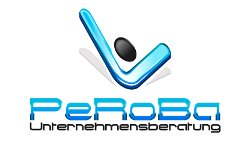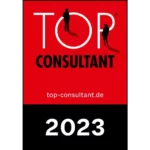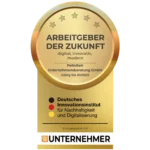DIN EN ISO 19011:2018
DIN EN ISO 19011:2018
Guidelines on auditing management systems – Process-oriented auditing
The new ISO 19011:2018 standard was published in July 2018. The German version DIN EN ISO 19011:2018 appeared in October 2018.
ISO 19011 provides instructions on managing and directing an audit program, on planning and performing a management system audit as well as on the competence and assessment of an auditor / audit manager and an audit team.
The structure and new contents of DIN EN ISO 19011:2018
First, it should be noted that the standard doesn’t follow the so-called high level structure, meaning the structure with 10 chapters analogously to ISO 9001. The standard continues to have 8 chapters.
The chapters are still, as follows:
▪ Passage 1 Scope
▪ Passage 2 Normative references (none)
▪ Passage 3 Terms and definitions
▪ Passage 4 Principles of auditing
▪ Passage 5 Managing an audit program
▪ Passage 6 Conducting a management system audit
▪ Passage 7 Competence and evaluation of management systems auditors and of audit teams
▪ Annex A provides additional guidance for auditors on planning and conducting audits.
Auditing risks and chances
In the chapter on principles of auditing, this passage has been supplemented by a new demand for a “risk-based approach”, which stretches right through the entire guidelines.
The chapter on the “audit program“ was structured in a new way and supplementary instructions with regard to risks were included. The audit program is more strongly connected to the strategic focus of the company. Furthermore, the requirements from DIN EN ISO 9001 like, consideration of the context of the organization, of identified risks and chances and the objectives of the organization are expanded.
The audit program is supplemented by instructions on management, especially of existing risks and on the performance of audits with regard to digital media. PeRoBa® auditors have been using data glasses, so-called smart glasses for audits for quite some time. This is supposed to serve the reduction of audit expenditures during follow up audits or the involvement of specialists.
In passage 5, the Plan – Do – Check – Act cycle by Deming is presented. Likewise, the coordination of audit activities is dealt with.
In Annex A, there are supplementary explanations, like, for instance, on the following:
- The principle of the process approach to auditing
- The term „Professional judgment“ is new
- Auditing compliance regulations
- Auditing leadership and commitment
- Auditing integrated management systems
- Audit of supply chain
- Auditing virtual activities and locations
iVision® – Smart Solutions by PeRoBa® Unternehmensberatung GmbH
The performance of audits in highly complex surroundings becomes more and more of a challenge. Especially during remote audits, the utilization of new technologies can be an option for reducing expenditures and achieving objectives in a more efficient manner.
With the aid of the iVision® Audit Solution, an innovative technology, it is possible for us to reduce efforts for remote audits drastically. A coworker of the company is provided with our iVision® software including data glasses.
For example, an auditor is able to see the same things the coworker sees on-site as well by means of this technology. During this, the auditor could also be based on the other side of the world. Communication occurs likewise through data glasses. The auditor can communicate with the coworker on-site and give them instructions. This coworker performs the audit personally “on-site” instead of the auditor. That approach can be especially very helpful for involving audit specialists whose expert competence is solely required for a limited period of time.
Furthermore, the auditor can provide the viewing field of the coworker with visual information, clues and supplements. Thus, for example, an area the auditor wants to check out more precisely can be marked.
Due to the integration into the IT system, an automatically generated audit report can be created out of this connection and the auditor can further edit and process this auditing report within a very short time.
Conclusion
Requirements on auditors are more specified. The issues of knowledge, competence and skills all around the specialist topic of “internal audits” including the planning and performance of audits and follow-up activities are emphasized. Moreover, qualities like process knowledge, handling new media safely, confidence when it comes down to methods and reliable applications of professional judgment are required.
Personal demeanor, radiance and charisma as well as their direct contact to experts, executives and top management are supplementary requirements for auditors so that they can act as ambassadors for the management system. Besides, they need persuasiveness and a wealth of ideas on further developing the management system.
We support you
The team of the PeRoBa® Unternehmensberatung (Management Consultancy) GmbH is happy to stand by your side if you have more questions in this context of if you would like to get recommendations for action. If you have any inquiries or if you would like support, please don’t hesitate to get in touch with us at: https://www.peroba.org/contact/
Your PeRoBa® Unternehmensberatung (Management Consultancy) GmbH Team



